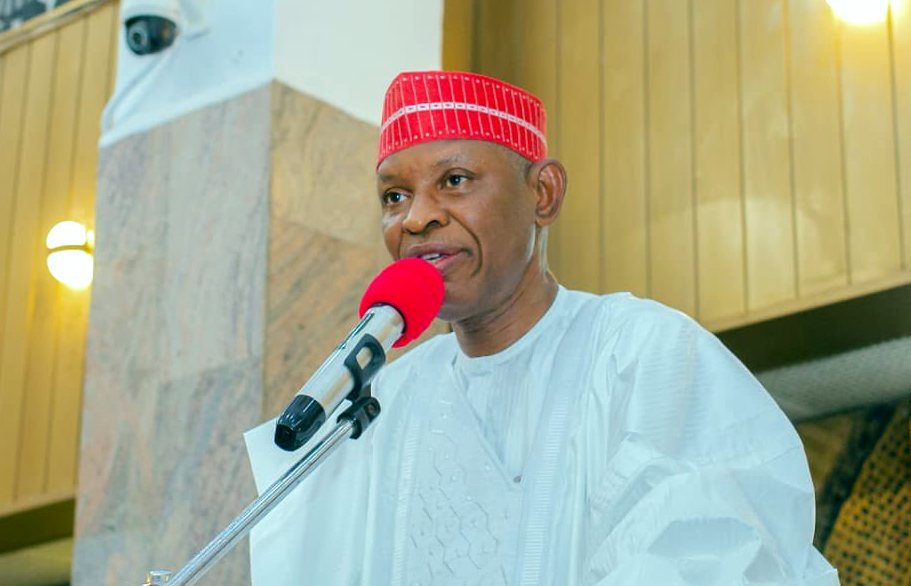The political landscape of Kano State is buzzing with activity as Governor Abba Yusuf sets his sights on governance and downplays anxieties surrounding the 2027 elections. His recent declaration that re-election is not his primary concern has sparked both intrigue and speculation within the state’s political circles. Governor Yusuf, while addressing a women’s empowerment program, emphasized his focus on fulfilling the promises made to the people of Kano during his campaign. He believes that his performance in office will ultimately determine his political future, rather than preemptive campaigning or anxieties about securing a second term. This statement reflects a confidence in his ability to deliver tangible results and a belief that the electorate will reward effective governance. This approach stands in contrast to the often-frenetic pre-election maneuvering that dominates the political scene in many regions.
Governor Yusuf’s confidence stems partly from the resounding victory of his New Nigeria Peoples Party (NNPP) in the 2023 general elections. The NNPP’s triumph was a landslide, sweeping the All Progressives Congress (APC) out of power and securing a significant majority in the state legislature. This resounding victory, achieved despite the NNPP’s lack of incumbency advantage, has reinforced Yusuf’s belief that his governorship is divinely ordained. He views his electoral success as a testament to the will of the people and a mandate to deliver on his promises. This perspective allows him to approach governance with a sense of purpose and a focus on long-term goals, rather than being consumed by the immediate pressures of electoral politics.
The governor’s emphasis on performance over electioneering is a notable departure from the norm in Nigerian politics. Often, the pursuit of re-election overshadows governance, leading to short-sighted policies and neglect of long-term development goals. By prioritizing his current mandate, Yusuf signals a commitment to addressing the needs of the people of Kano. He aims to demonstrate that his administration is focused on tangible improvements in areas such as infrastructure, education, healthcare, and economic development, rather than engaging in premature political posturing. This approach, if successful, could set a new precedent for governance in the state and potentially influence the broader political landscape.
However, the governor’s statements also carry a subtle political undertone. By downplaying the importance of re-election, he simultaneously diminishes the perceived threat posed by potential rivals. This tactic suggests a strategic move to project an image of strength and control, conveying the message that he is unfazed by the machinations of the opposition. Simultaneously, by emphasizing his reliance on divine will, Yusuf cultivates an image of humility and piety, appealing to the religious sensibilities of the electorate. This blend of confidence and humility is a potent political strategy, designed to resonate with a broad spectrum of voters.
Furthermore, Governor Yusuf has cautioned against inflammatory rhetoric and hate speech in the lead-up to the 2027 elections. He has expressed concern that such divisive language could discourage voter participation and undermine the democratic process. This concern highlights the potential for political tensions to escalate in the coming years, particularly given the stark contrast between the NNPP’s resounding victory and the APC’s significant losses. The governor’s call for restraint suggests an awareness of the fragile nature of political stability and a desire to prevent a repeat of the pre-election violence that has marred previous elections in Nigeria.
The governor’s confidence in his leadership and his focus on delivering tangible results for the people of Kano set the stage for an interesting political dynamic in the years to come. His emphasis on performance over electioneering and his call for responsible political discourse offer a potential roadmap for a more mature and productive political climate in the state. Whether this approach will translate into sustained progress and a second term in office remains to be seen. However, Governor Yusuf’s initial pronouncements suggest a clear vision for his administration and a determination to leave a lasting legacy on Kano State. The next few years will be crucial in determining whether he can fulfill his promises and live up to the expectations he has set for himself and his administration.


